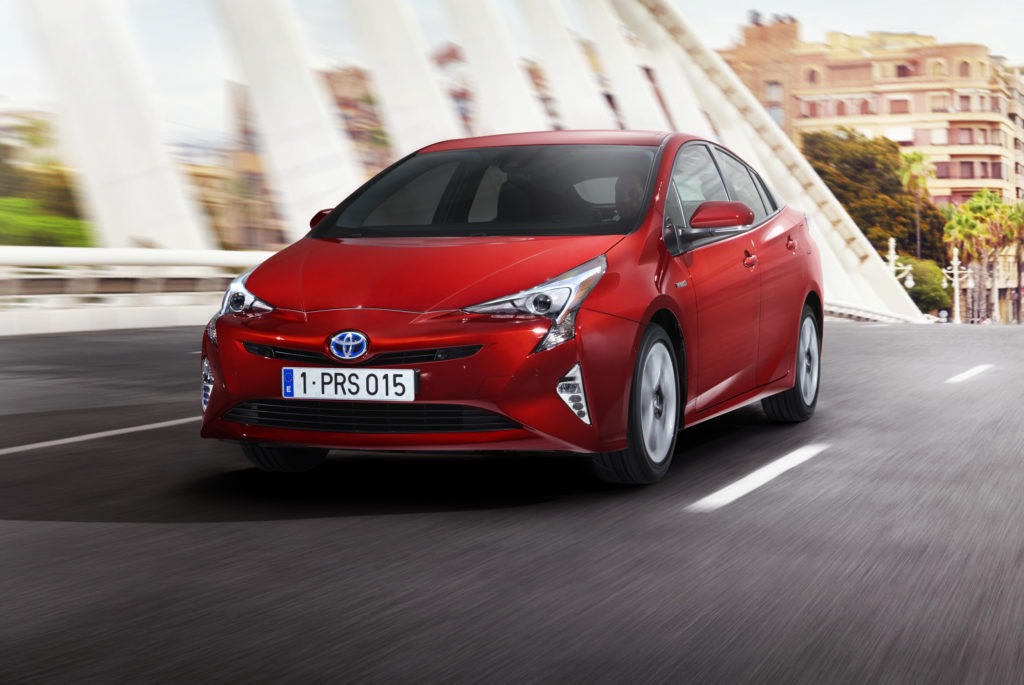China forces Toyota into ‘agonising’ electric U-turn
20 April 2017

20 April 2017
Low emission policies especially in China have forced Toyota to abandon its reluctance towards full electrification of its cars, with China’s proposed policy to group non-plug-in hybrids like the Prius as petrol-fuelled vehicles for its emissions reduction strategy likely being the final straw.
For a long time, the Prius has been the cornerstone of Toyota’s green strategy worldwide. It planned to use conventional hybrids as its medium-term bridge, largely skipping all-electric vehicles (EVs), as it set its sights towards the hydrogen-powered cars of the future – the company’s ultimate goal.
However, with China being by far the biggest auto market globally, it is impossible for Toyota to ignore. The latest draft proposals from Chinese policymakers, released in September, require 8% of carmakers’ sales in the country to be all-electric or plug-in hybrid by next year – rising to 10% in 2019 and 12% in 2020. With the Prius – and Toyota’s core emissions strategy – falling outside the criteria of these so-called new-energy vehicles (NEVs), Toyota has no choice but to quickly perform an enormous change of course.
One Toyota executive anonymously told Reuters the forced U-turn, which requires a shift in the fundamental long-standing ethos of the company, was ′agonising’ and ′heart-wrenching.’
Another, responding to the increasingly stringent targets to 12% plug-in EVs by 2020, said: ′Those mandates are tough to the point it could wreck our fundamental business case.’
One of them added: ′The Prius and other hybrid cars are central to our green car strategy″¦ But in China’s view, the Prius is no more than a gasoline car. We have no choice but to get over our EV allergy and come up with an electric car.’
China has recently indicated it may lower the targets to 2020 somewhat, in response to pressure from the auto industry saying the targets are not achievable, but the general plan to pressure towards plug-in EVs is expected to stay in place. Hydrogen vehicles were not an option with mass deployment still being at least a decade away, with key issues to resolve such as sourcing the hydrogen.
Following a realisation that it would need to, at least in the medium term, produce electric vehicles to meet ever stricter air pollution policies, in November last year it set up a new division, the EV Business Planning Department, to launch its all-electric vehicle strategy. Showing the new central importance of the division, it put its president, Akio Toyoda, in charge. The division will be dedicated to developing electric cars that can travel more than 300km (186 miles) on a single charge.
Industry experts expect Toyota’s long-range electric cars to reach market around 2020. This is around the same time as Volkswagen’s planned major EV launch wave. Toyota’s experience in electric hybrid technology gives it an advantage, however. Toyota will launch an all-new plug-in hybrid version of the Prius in the coming months. Engineers have told Reuters that by developing a safe and powerful lithium-ion battery for the model, Toyota will be able to produce batteries for their EVs in future. Nevertheless, it also plans to launch hydrogen car tests in China in October, aiming to build a hydrogen fuelling station in Changshu city on the core of China’s east coast.
Additional stringent fuel economy requirements will mean non-plug-in hybrids are likely to still play a major role in Toyota’s push in China, however. Toyota sold 300,000 vehicles in China in January-March, up 1.7% year-on-year.
Head of Toyota’s China business Hiroji Onishi said on Tuesday ahead of this week’s Shanghai Auto Show that the Japanese firm would begin selling plug-in hybrid cars in China next year, and, without giving a timescale, aims to sell an all-electric battery car in China.
Meanwhile, Toyota’s full-on focus on hybrids worldwide continues to pay off. In Europe, Toyota recorded the biggest monthly increase among all major OEMs, with an 18.8% sales rise, followed by FCA (Fiat Chrysler) with 18.2% and Nissan with 17.7% (with Alliance partner Renault on 14.4%). Market leader Volkswagen lost ground with a below-market rise of 6.2%, behind PSA’s underperforming 6.7%. Overall, hybrids now dominate Toyota’s sales, accounting for the vast majority of their sales.
Photograph courtesy of Toyota